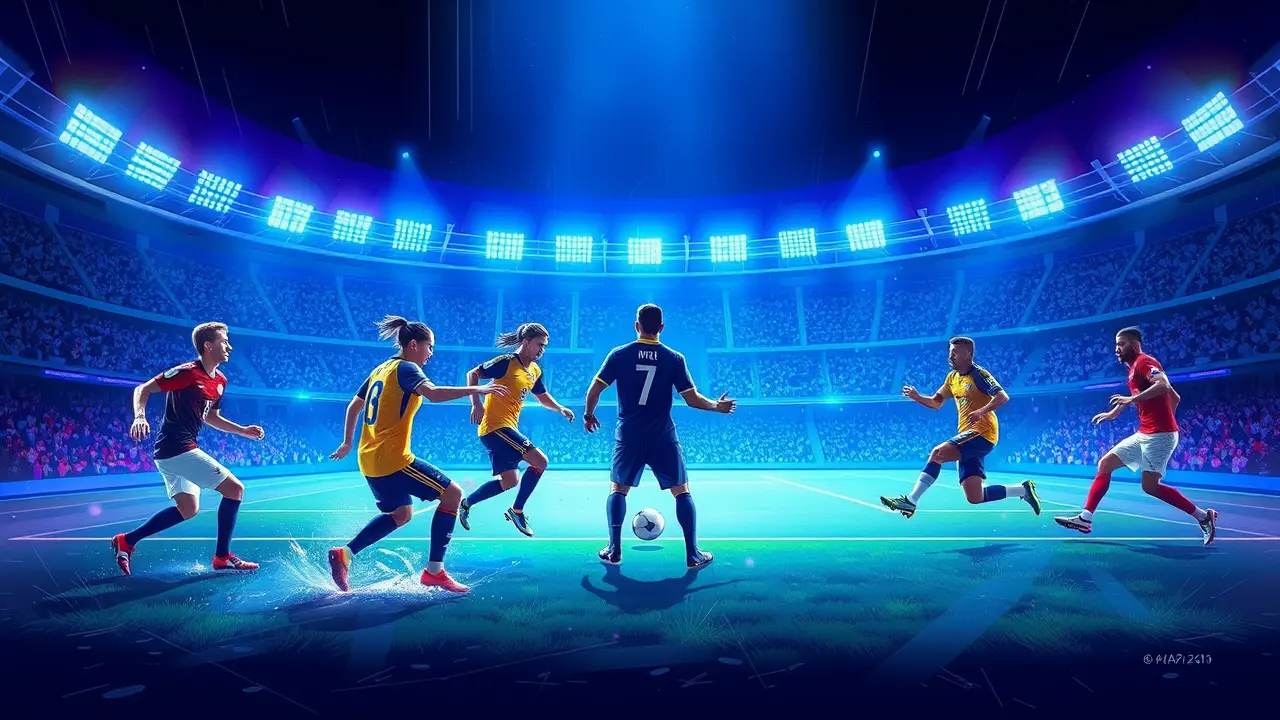International Football Friendlies: Argentina to Play, Brazil Loses
The international football stage was set alight with a series of captivating friendlies, headlined by a seismic shock in Tokyo where Japan orchestrated a stunning 3-2 comeback victory over a faltering Brazil, a result that sends tremors through the global football hierarchy just as Lionel Messi's Argentina prepared for their own stateside test against Puerto Rico. At the Ajinomoto Stadium, the Seleção seemed to be cruising, their samba flair on full display with early goals from the ever-industrious Paulinho in the 26th minute and the electric Gabriel Martinelli just six minutes later, a lead that felt as comfortable and predictable as a Pele-era highlight reel.But the second half unveiled a different narrative, one of Samurai Blue resilience that would have made legends like Zico, who once bridged these footballing cultures, proud. Takumi Minamino ignited the comeback in the 52nd minute, a spark that became a flame when Keito Nakamura leveled the score ten minutes later, before Ayase Ueda completed the remarkable turnaround in the 71st minute, leaving the Brazilian defense, featuring the likes of Casemiro and Vinicius Junior, looking as disorganized as a Sunday league side caught in a downpour.This wasn't just a loss for Brazil; it was a statement, a potential passing of the torch reminiscent of when Croatia dismantled Germany in the 1998 World Cup, signaling a new competitive balance where traditional powerhouses can no longer take Asian football lightly. The implications are profound, casting a shadow over Brazil's managerial direction and squad cohesion, while for Japan, this victory is a monumental confidence booster, a testament to their meticulous development system that is producing technically gifted and mentally robust players capable of trading blows with the very best.Meanwhile, in a parallel narrative of Asian ascendancy, South Korea delivered a controlled 2-0 victory over Paraguay in Seoul, with goals from Ji Sung and Oh Hyun Gyu, a performance that, while less dramatic, underscored the tactical discipline and growing depth under their own stewardship, featuring stars like Son Heung-min and Kim Min Jae who are now household names in Europe's top leagues. Elsewhere, the results painted a global picture of preparation and occasional surprise: Iran secured a straightforward 2-0 win against Tanzania, Albania edged a six-goal thriller 4-2 against Jordan in a match that saw Armando Broja on the scoresheet, and Norway was held to a 1-1 draw by a dogged New Zealand, a result that will raise questions in Oslo.The focus now shifts to the Americas, where the world champions Argentina, led by the magisterial Messi, are slated to face Puerto Rico in Miami, a fixture that on paper seems a mere formality but in the context of maintaining a winning mentality post-World Cup triumph is crucial, much like Spain's need to consistently perform after their 2010 zenith. Simultaneously, intriguing clashes between Colombia and Canada, and a high-profile encounter between the United States and Australia, offer further data points in the ever-evolving landscape of international football.These friendlies, often dismissed as mere exhibitions, are in fact critical laboratories for tactical innovation, squad assessment, and measuring the pulse of a nation's footballing health. For Brazil, the lab results are alarming, a humbling experience that exposes defensive frailties and a lack of game management, problems that their golden generation of the early 2000s, with Cafu and Lucio marshaling the backline, rarely exhibited. For the victors, like Japan and South Korea, these matches validate their processes and announce their readiness to not just participate, but to compete and conquer on the world's biggest stages, turning the beautiful game into a truly global, and increasingly unpredictable, theater.
Latest News
The charts are whispering what the true believers have felt in their bones for weeks—Dogecoin is carving out a bottom.
17 hours ago5 comments
The Institute for Fiscal Studies has thrown a stark warning onto Rachel Reeves's desk, urging the Chancellor to confront a potential £22 billion shortfall in
18 hours ago3 comments
Alright, let's break down this absolute heater of a performance from the Chicago Blackhawks, because if you missed this one, you missed a party.
18 hours ago5 comments
The ice was hot last night in the NHL, folks, serving up a slate of games that felt less like a regular season Tuesday and more like a playoff preview with a
18 hours ago3 comments
The XRP chart is painting a tantalizing picture for those with the stomach to withstand the relentless pressure from crypto's leviathans.
18 hours ago4 comments
It’s in the small shifts, the quiet recalibrations of a Thursday morning, where the most meaningful change often takes root.
18 hours ago4 comments
In a move that sent ripples of quiet confidence through the crypto ecosystem, blockchain intelligence firms tracked a monumental treasury allocation from
18 hours ago4 comments
In a move that would have drawn a nod of approval from historical figures like Churchill, who understood the delicate balance of power within democratic
18 hours ago2 comments
JA
Jamie Larson123k2 days ago
wow japan what a comeback tbh brazil's defense was just not there
0
JA
Jamie Larson123k2 days ago
wait what brazil lost to japan that's actually insane
0
JA
Jamie Lowe123k2 days ago
brazil's defense completely fell apart in that second half, smh not a good look right before the big tournaments
0
